
REF: 6302 – AUCKLAND DISTRICT LAW SOCIETY INC.
FORM OF REGISTRABLE MEMORANDUM
Section 155A, Land Transfer Act 1952
MEMORANDUM OF GENERAL TERMS AND CONDITIONS
Intended for inclusion in instruments of the following type:
General Security Agreement
x ADLS Form Ref 6301
Memorandum of Mortgage (all obligations)
x ADLS Form Ref 6305 or 6306
2015/4326
ADLSI 6302/15012
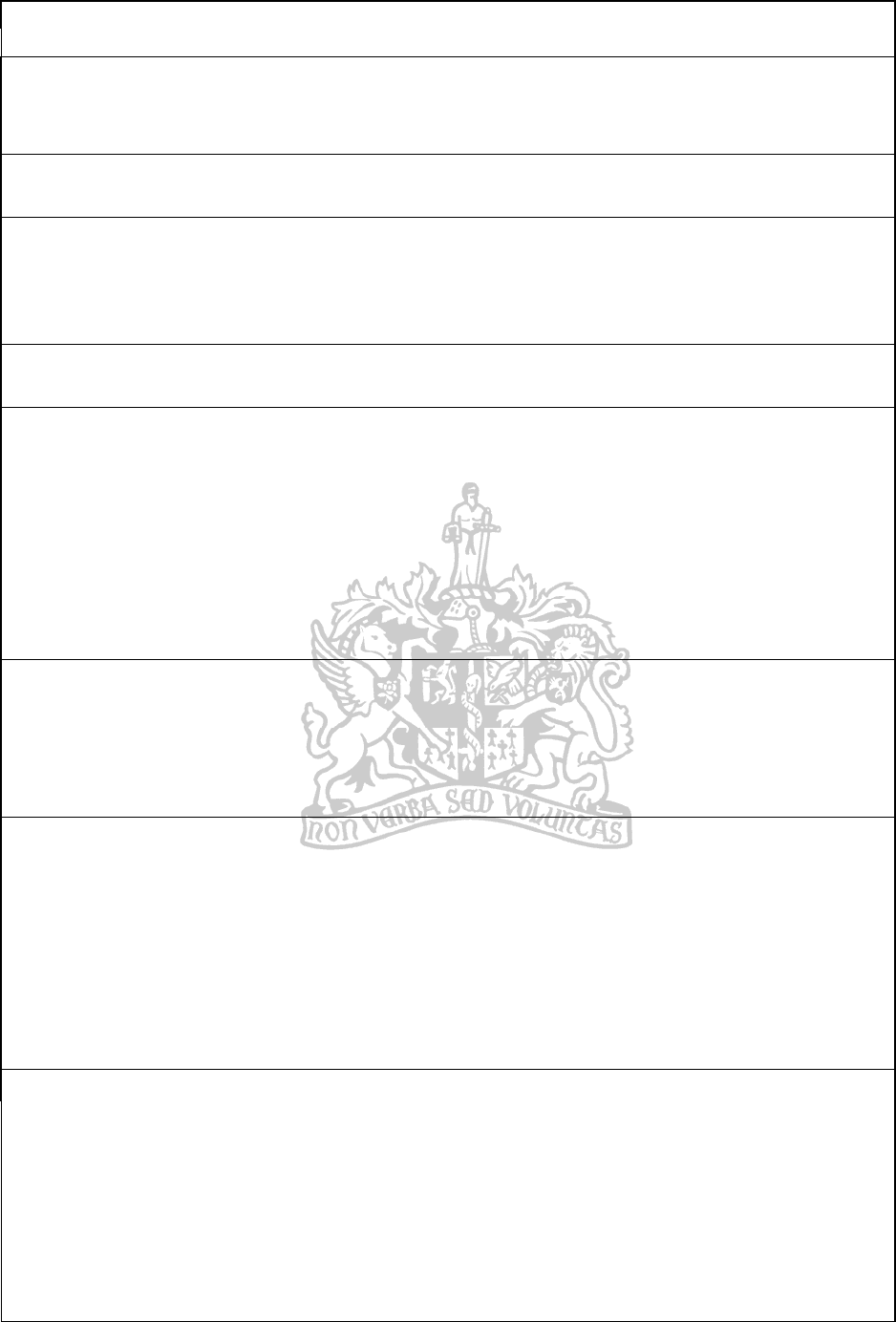
REF: 6302 – AUCKLAND DISTRICT LAW SOCIETY INC.
TABLE OF CONTENTS
Part Heading Page
Part 1 Interpretation
Clause 1.
Clause 2.
Interpretation – general
"The secured moneys" defined
1
3
Part 2 Payment
Clause 3. Covenant to pay and comply with obligations 4
Part 3 Security
Clause 4.
Clause 5.
Clause 6.
Extent of Security Interests
Security provisions
Negative pledge
4
5
6
Part 4 Representations and Warranties
Clause 7. Representations and warranties 6
Part 5 Covenants Relating to Land
Clause 8.
Clause 9.
Clause 10.
Clause 11.
Clause 12.
Clause 13.
Clause 14.
Insurance
Use and maintenance of land
Compliance with Resource Management Act 1991
Unit Titles
Leasehold (including cross-lease)
Farming provisions
Building and other works
7
7
8
8
9
10
11
Part 6 Covenants relating to Personal and Other Property
Clause 15.
Clause 16.
Clause 17.
Clause 18.
Positive covenants
Negative covenants
Livestock
Insurance
11
13
13
14
Part 7 Default and Enforcement
Clause 19.
Clause 20.
Clause 21.
Clause 22.
Clause 23.
Clause 24.
Clause 25.
When default occurs
Rights and powers of security holder on default
Accelerating payment of secured moneys on default
Payment of moneys by security holder
Rights and powers relating to land
Rights and powers relating to personal property
Receiver
14
15
16
16
17
18
18
Part 8 Miscellaneous Terms
Clause 26.
Clause 27.
Clause 28.
Clause 29.
Clause 30.
Clause 31.
Clause 32.
Transfer by security holder
Prior charges
Service of notices
Costs
Miscellaneous provisions
Trustees
Licence To Use Memorandum
20
20
20
21
21
22
22

REF: 6302 – AUCKLAND DISTRICT LAW SOCIETY INC. 1
PART 1 INTERPRETATION
1. INTERPRETATION – GENERAL
(a) Inclusion in instruments: The words "this instrument" mean this memorandum and any document that contains
a provision incorporating into that document any or all of the provisions set out in this memorandum as amended,
added or varied specifically by the terms of any annexure or schedule attached to that document.
This memorandum on its own does not create a security interest in any property.
(b) Exclusion of non-relevant provisions: To the extent that any provision in this memorandum (a "non-relevant
provision") is not consistent with or by its context or content is not relevant to:
(i) property of the type over which a security interest is granted in this instrument or
(ii) the type of security interest created by this instrument
then that non-relevant provision will not be incorporated into this instrument. For example, if this instrument is a
mortgage of land the following provisions are not incorporated:
provisions not incorporated into a mortgage of land: clauses 4(b), 4(c), 5(e), 15, 16(b), 17, 18, 24 and 25.
(c) Construction of terms: In this instrument, unless inconsistent with the context:
(i) any expression that corresponds to a heading means and includes the information and particulars inserted against
that heading; and
(ii) the expression "party granting the security" includes all persons executing this instrument regardless of how
they may be described in the instrument and if this instrument is a mortgage of land any person who accepts,
subject to this instrument, a transfer, assignment or transmission of the land the subject of this instrument and
the covenants contained and implied in this instrument will bind all such persons jointly and severally as
principal party granting the security and, if this instrument is a security agreement as defined in the Personal
Property Securities Act 1999, means the debtor as that term is defined in that Act;
(iii) a reference to a person (whether by name or position) extends to and includes the executors, administrators,
transferees and assigns of that person; and
(iv) the "security holder" means the party named as such or, if this instrument is a mortgage of land, named as
the mortgagee in this instrument or in an annexure schedule to this instrument;
(v) the singular includes the plural and vice versa; and
(vi) a reference in any provisions of this memorandum to any law is a reference to that law as at 1 January 2008
unless the provision requires the party granting the security to comply with that law and that law is changed in
which case the requirement to comply with the relevant law is a requirement to comply with the amended law.
In this memorandum, clause and paragraph headings are included to assist with navigation through the
memorandum and do not affect the content of the clause or paragraph.
(d) Meaning of certain words: In this instrument, unless inconsistent with the context:
"accommodated person" means any person:
(i) with whom the security holder contracts or makes any arrangement; or
(ii) to whom the security holder provides any financial services or facility
for the accommodation of the party granting the security;
"for the accommodation of the party granting the security" means for the accommodation of, at the request of, at
the direction of or on account of the party granting the security or, if there are more than any one of them, any one or
more of them;
"charged property" means the property, charged by this instrument;
"collateral" means:
(i) if this instrument is a mortgage of land, the land referred to in the memorandum of mortgage, and
(ii) in the case of all other instruments either real and personal property together or separately as the
circumstances may dictate and as further defined in this instrument.
"development works" in relation to any land includes the subdivision, development or improvement of the land and
also includes the construction, development, alteration, addition of fixtures or repair of any building or other
improvement on the land;
"general security agreement" means, in relation to personal property, a security agreement as defined in the
Personal Property Securities Act 1999 creating or intended to create a security interest in personal property and, in
relation to other property, any deed, instrument or other document creating or intending to create a security interest in

REF: 6302 – AUCKLAND DISTRICT LAW SOCIETY INC. 2
that other property, but does not include a mortgage of land registered or intended to be registered under the Land
Transfer Act 1952;
"land proceeds" means:
(i) all moneys payable to the party granting the security arising:
(A) from the cultivating, harvesting, selling or otherwise utilising of trees, timber, logs or crops to be grown or
growing on the land now at any time in the future;
(B) from any profit à prendre or forestry right;
(C) out of the ownership, use or occupation of the land or any agreement relating to its ownership use or
occupation including any sale proceeds , any rents, any damages and any proceeds of any insurance
including insurance in respect of loss of earnings or income; and
(ii) any resource consent issued in respect of the land pursuant to the Resource Management Act 1991;
"laws" and "law" means any Act of Parliament, regulation, Order in Council, local authority by-law;
"mortgage"and "land" have the meanings set out in the Land Transfer Act 1952;
"other property" means any property that is not personal property for the purposes of the Personal Property
Securities Act 1999;
"person" includes a company or other body corporate;
the "prescribed interest rate" means the prescribed interest rate as determined pursuant to clause 30(a) and for the
time being in force;
"property" means and includes real property, personal property and other property;
"real property" means land;
"receiver" has the meaning set out in the Property Law Act 2007;
"rules" in clause 11 means both body corporate rules under the Unit Titles Act 1972 and body corporate operational
rules under the Unit Titles Act 2010;
"secured agreement" means every contract, agreement, arrangement, services, or facility provided or entered into
by the security holder:
(i) for the accommodation of any accommodated person; and/ or
(ii) relating to the secured money;
"security interest"
(i) in relation to land, means an interest in land under a mortgage and includes any unregistered charge on any
land and any interest in any land granted or created for securing money or the payment or performance of an
obligation;
(ii) in relation to personal property has the meaning set out in section 17 of the Personal Property Securities Act
1999; and
(iii) in relation to other property means any interest in that property that has been created for the purposes of
securing money or moneys worth;
"schedules" refers to one or more of them as the context requires;
"taxes" includes any present and future tax, levy, impost, duty, rate, charge, fee, deduction and withholding of any
nature regardless of where and by whom imposed, levied, collected, withheld and assessed and includes interest,
penalties, fines, costs, charges and expenses and other amounts relating to and arising in connection with taxes;
"taxpayer's paying rate" has the meaning set out in section 120C of the Tax Administration Act 1994; and
"upon demand" means upon demand by notice in writing signed by or on behalf of the security holder.
(e) Terms relating to personal property: If this instrument relates to or includes property that includes personal
property and/or other property that is not land then, unless the context otherwise requires, words and expressions
defined in the Personal Property Securities Act 1999 have the same meaning in this instrument.
(f) Relationship with Laws: If any provision in this instrument conflicts with, varies or is contrary to the provisions of
any law or any provisions implied in instruments by any law then:
(i) if the provisions of or implied by that law may be varied or negated, the provisions of this instrument will take
precedence and the provisions of or implied by that law will be deemed not to apply to this instrument or to
apply only as varied by the provisions of this instrument;
(ii) if the provisions of or implied by that law may not be varied or negated, then the provisions of this instrument
must be read subject to the provisions of or implied by that law.

REF: 6302 – AUCKLAND DISTRICT LAW SOCIETY INC. 3
The provisions in this memorandum are not exclusive and all laws that would otherwise apply to this instrument
continue to apply unless they have been varied or negated by the provisions of this memorandum.
(g) Meaning of change in control of company: For the purposes of this instrument, there is a material change in the
control of a company if:
(i) shares carrying between them the right to exercise or control the exercise of 25% or more of the voting power
in the company become held legally or beneficially by any person or persons not holding any shares in the
company at the date of this instrument; or
(ii) any one person who at the date of this instrument has the right to exercise or control the exercise of 50% or
more of the voting power in the company ceases to have that right.
(h) Meaning of material reduction in value of land: For the purpose of this instrument, there is a material reduction
in the value of the land within the ambit of clause 19(d)(iv) if:
(i) any resource consent is granted or there is any change in the relevant regional or district plan in either case
affecting the land; or
(ii) any resource consent or any permission deemed to be a resource consent granted in respect of the land
lapses, is cancelled or is changed; or
(iii) any right under sections 10, 10A or 20 of the Resource Management Act 1991 to carry on any non-complying
use of or activity on the land lapses; or
(iv) any enforcement order is made under the said Act; or
(v) any authority exercises any compulsory statutory power,
and, in any such case, the value of the land or of the security holder's security is, in the security holder's reasonable
opinion, thereby materially reduced or likely to be so reduced.
2. "THE SECURED MONEYS" DEFINED
(a) In this instrument, "the secured moneys" means:
(i) all moneys which are now or at any time in the future owing by a party granting the security or an
accommodated person to the security holder;
(ii) all advances, reasonable costs incurred and expenditure made for the protection, maintenance, preservation
or repair of any charged property or for the enforcement of any security interest under this instrument and any
other amounts contemplated by section 87 of the Property Law Act 2007; and
(iii) each and every payment or performance of an obligation:
(A) by a party granting the security or, if there is more than one, any one or more of them; or
(B) by any accommodated person, in respect of any secured agreement;
and, without limiting the generality of the foregoing, includes all moneys owing in respect of:
(iv) loans, credits, advances or other financial services or facilities made or provided to the party granting the
security or to any one or more of them or to any other person for the accommodation of the party granting the
security;
(v) any bill of exchange, promissory note, draft, order or other negotiable instrument drawn, accepted, endorsed,
paid, discounted or held by the security holder or to which the party granting the security or any one or more of
them is or are also a party or parties in any capacity or which the security holder has drawn, accepted,
endorsed, paid, discounted or holds for the accommodation of the party granting the security;
(vi) any property or services disposed of or provided by the security holder to the party granting the security or to
any one or more of them or to any other person for the accommodation of the party granting the security;
(vii) payment made by the security holder for any property or services acquired by or provided to the party granting
the security or to any one or more of them or to any other person for the accommodation of the party granting
the security;
(viii) the financing, shipment or confirming of goods on behalf of the party granting the security or any one or more
of them or any other person for the accommodation of the party granting the security;
(ix) any bailment, hire purchase instrument, conditional purchase instrument or similar instrument entered into by
the security holder with the party granting the security or with any one or more of them or with any other
person for the accommodation of the party granting the security or the acquisition by the security holder of any
property intended to be the subject of a bailment or any such instrument as aforesaid or any assignment
(whether absolute or by way of security) taken by the security holder from the party granting the security or
from any one or more of them or from any other person for the accommodation of the party granting the
security, of any bailment or any such instrument or any such property;
(x) any debt assigned (whether absolutely or by way of security) to the security holder;
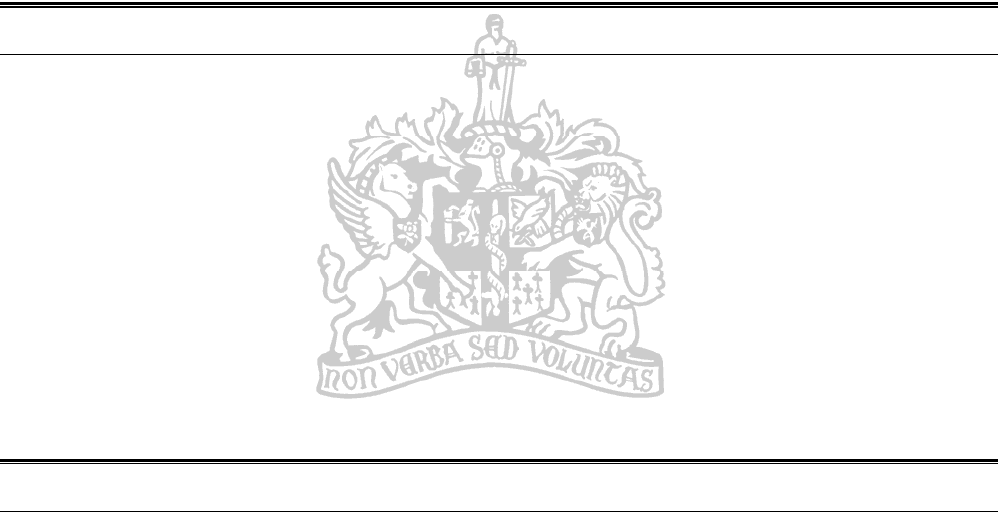
REF: 6302 – AUCKLAND DISTRICT LAW SOCIETY INC. 4
(xi) any guarantee, indemnity, bond, letter of credit or other obligation provided by the party granting the security
to or in favour of the security holder or provided by the security holder for or on account of the party granting
the security or any one or more of them or any other person for the accommodation of the party granting the
security;
(xii) all interest, commission, costs and charges payable to or incurred by the security holder under or in relation to
this instrument or any indebtedness secured by this instrument; and
(xiii) any moneys owing prior to the date of this instrument for which the security holder has agreed to forebear
from suing.
(b) Moneys are to be regarded as being included in "the secured moneys":
(i) whether or not the liability for such moneys is matured or not matured, actual or contingent, or liquidated or not
liquidated;
(ii) whether or not such moneys are also secured by any other security;
(iii) whether or not any instrument or arrangement relating to such moneys expressly refers to this instrument;
(iv) whether or not the liability for such moneys arises by instrument (express or implied), by operation of law or
otherwise; and
(v) whether or not such moneys are owing by any party granting the security or accommodated person (as the
case requires) jointly with or otherwise in combination with any person who is not a party granting the security,
party granting the security or accommodated person.
PART 2 PAYMENT
3. COVENANT TO PAY AND TO COMPLY WITH OBLIGATIONS
(a) Pay and comply: The party granting the security must:
(i) pay the secured moneys at the times and in the manner provided by any secured agreement and, to the
extent that there is no such agreement, then upon demand;
(ii) comply with all of the obligations contained in every secured agreement or arrangement relating to the
secured moneys where such obligations are:
(A) undertaken by any person liable for payment of the secured moneys; and
(B) intended to be for the benefit of the security holder; and
(iii) comply with the terms of every other security at any time held by the security holder for the secured moneys.
(b) Pay interest: If there is no agreement between the relevant parties as to liability for payment of interest on the
secured moneys, the party granting the security will pay to the security holder interest on the secured moneys
(whether or not demand has been made) on the last day of each month at the prescribed interest rate, calculated
with daily rates from the date on which the moneys become owing.
PART 3 SECURITY
4. EXTENT OF SECURITY INTERESTS
(a) Over land
If this instrument is a mortgage of land then the party granting the security mortgages to the security holder all of its right
title and interest (present, future, legal and equitable) in the land and assigns to the security holder absolutely all of its
right title and interest (present, future, legal and equitable) in land proceeds.
(b) Over specific property
If this instrument is a general security agreement over specific property then the party granting the security grants to the
security holder a security interest in the collateral described in this instrument and all proceeds of that collateral.
(c) Over all property
If this instrument is a general security agreement over all of the property of the party granting the security then the party
granting the security grants to the security holder a security interest, and where any part of the secured moneys is used
to acquire rights in collateral, a purchase money security interest, in and over:

REF: 6302 – AUCKLAND DISTRICT LAW SOCIETY INC. 5
(i) personal property: all its personal property of any kind or nature and wherever it may be situated, that is
either presently or in the future will be owned, held, leased, under the control or in the possession of the
party granting the security and by way of example and not limitation includes:
(A) equipment: all equipment which by way of example and not limitation includes all machinery, tools,
fixtures, furniture, furnishings, chattels, motor vehicles and other tangible personal property that is not
inventory, and all parts, components, attachments, accessories, accessions, replacements, substitutions,
additions and improvements to any of the foregoing;
(B) inventory: all inventory which by way of example and not limitation includes goods acquired or held for
sale or lease or furnished or to be furnished under contracts of rental or service, all raw materials, work in
process, finished goods, returned goods, repossessed goods, all livestock and the young thereof after
conception, all crops (planted or otherwise) and timber, and all packaging materials, supplies and
containers relating to or used or consumed in connection with any of the foregoing;
(C) accounts receivable: all debts, accounts, claims, demands, monies and choses in action which are now
or which may at any time in the future be due or owing to or owned by the party granting the security and
all books, records, documents, papers and electronically recorded data that has records, evidences or
relates to the said debts, accounts, claims, demands, monies and any other choses in action or any part
thereof;
(D) title rights: all documents of title, chattel paper, negotiable instruments, investment securities and
money, and all other goods including resource management consents in which the party granting the
security has or will have rights in that is not equipment, inventory or accounts;
(E) contractual rights: all contractual rights, licences, goodwill, patents, trademarks, trade names,
copyrights and other intellectual property of the party granting the security, all other choses in action of
every kind which are now or which may at any time in the future be due or owing to or owned by the party
granting the security, and all other intangible property that is not an account receivable, chattel paper,
negotiable instrument, document of title, investment security or money; and
(F) proceeds: all proceeds of any nature and kind arising from any collateral;
(ii) real property: all its real property assets of any nature and kind, both present and future including by way
of example and not limitation, all its interests in land and the rents, revenue or income from its land to the
intent that a caveatable interest in land is created in favour of the security holder; and
(iii) other property: all its other property of any kind and nature both present and future.
5. SECURITY PROVISIONS
(a) Section 92 maximum amount: For the purposes of section 92 of the Property Law Act 2007, the maximum
amount up to which the sum owing under this instrument will rank in priority to any subsequent instrument, charge
or security interest is the priority sum recorded in this instrument.
(b) Maximum amount neither waiver or representation: Stating a maximum amount does not act:
(i) as a waiver of the security holder's security under this instrument for so much of the secured moneys as may
exceed the priority sum; nor
(ii) as a representation of the total amount of secured moneys to be provided by the security holder or intended to
be secured by this instrument.
(c) Running security: Until the security holder executes a final discharge of this instrument in writing, it will be a
running and continuing security for payment of the secured moneys and compliance with its terms despite:
(i) payment of any sums to the security holder from time to time; or
(ii) any account between the party granting the security and the security holder being in credit at any time; or
(iii) any settlement of account or other circumstance whatsoever.
(d) Security not exclusive: This instrument and the security interest witnessed by this instrument are in addition to
and not in substitution for any other security interest now or in future held by the security holder from the party
granting the security, or from any other person.
(e) No intention to delay attachment: By entering into this instrument, the parties agree that there is no intention to
delay the time of attachment and that the security interest created by this instrument will attach at the earliest time
permissible under the laws governing this instrument.
(f) Acknowledgement of value: The parties acknowledge that value has been given and that the party granting the
security has (or in the case of any after acquired property, will have at the time of its acquisition) rights in the
collateral.
(g) Rights unchanged: The security holder’s rights will not be affected at any time by:
(i) any amendment to this instrument; or

REF: 6302 – AUCKLAND DISTRICT LAW SOCIETY INC. 6
(ii) (in respect of one party) the invalidity or unenforceability of this instrument against any other party or the
release of any other party from this instrument or the failure of any other party to execute or otherwise be
bound by this instrument for whatever reason and whether or not known to the security holder; or
(iii) the dissolution, amalgamation, change in status, constitution or control, reconstruction or reorganisation of
any party (or the commencement of any steps to effect any of this).
(h) Further assurance: If the security holder requires, the party granting the security must promptly execute and
deliver to the security holder all assignments, transfers, security interests and any other agreements and
documents, and do anything else which the security holder may deem necessary to:
(i) perfect title in any collateral; or
(ii) perfect a security interest created under this instrument; or
(iii) vest, or enable to vest, any collateral in the security holder, its nominee or purchaser; or
(iv) facilitate collateral realisation; or
(v) secure the full benefit of the security holder’s rights under this instrument; and
(vi) do all things and execute all further instruments that may be required to assure the security holder of valid
and binding legal interests in the collateral.
(i) Attorney to provide further assurance: The party granting the security for so long as any of the secured money
is outstanding, irrevocably appoints the security holder and any, director, manager or officer of the security holder
to be its lawful attorney to act for and on its behalf for the purpose of executing, delivering and doing anything that
the party granting the security is required to do under clause 5(h) and any action taken by the attorney for the
purposes of clause 5(h) is hereby ratified and approved. This power may only be exercised if the party granting
the security has failed to act in accordance with clause 5(h) and only if the exercise of the power is not prohibited
by any law, for example any Act or regulation protecting the interests of consumers..
6. NEGATIVE PLEDGE
The party granting the security must not create or allow the creation of or allow to remain any instrument, charge or other
security interest in the collateral without the prior written consent of the security holder.
PART 4 REPRESENTATIONS AND WARRANTIES
7. REPRESENTATIONS AND WARRANTIES
The party granting the security and the covenantor represent and warrant to the security holder that:
(a) properly authorised and valid binding and enforceable: this instrument is granted in accordance with:
(i) the resolutions of the directors and shareholders (where applicable) or of the partners, as the case may be,
of the party granting the security; and
(ii) the Personal Property Securities Act 1999 and (if applicable) the Companies Act 1993;
and that all other matters and things have been done and performed so as to authorise and make the execution
and delivery of this instrument, and the performance of the party granting the security’s obligations to the security
holder legal, valid, and binding;
(b) ownership of collateral: the party granting the security lawfully owns, possesses and has rights in all presently
held collateral and will lawfully own, possess and have rights in property to be acquired and has good title free
from all security interests, charges, encumbrances, liens and claims save only the charges or security interests, if
any, shown in any schedule to this instrument that has been consented to by the security holder and the party
granting the security has in this instrument fully and accurately disclosed to the security holder the locations and
the business operations and records of the collateral and the party granting the security;
(c) collateral enforceable: where any collateral includes account receivables, chattel paper or negotiable
instruments, each is enforceable in accordance with its terms against the party obligated thereunder, and that the
party granting the security has fully and accurately disclosed to the security holder the amount owing and any
other relevant information concerning liability for payment thereunder;
(d) inclusion of all other representations and warranties: all representations and warranties given by the party
granting the security under any secured agreement form representations and warranties of this instrument and this
instrument must be read and construed to include such representations and warranties;
(e) default: no event of default has occurred and the party granting the security has no knowledge that an event of
default is about to occur nor does it reasonably suspect that an event of default will occur;
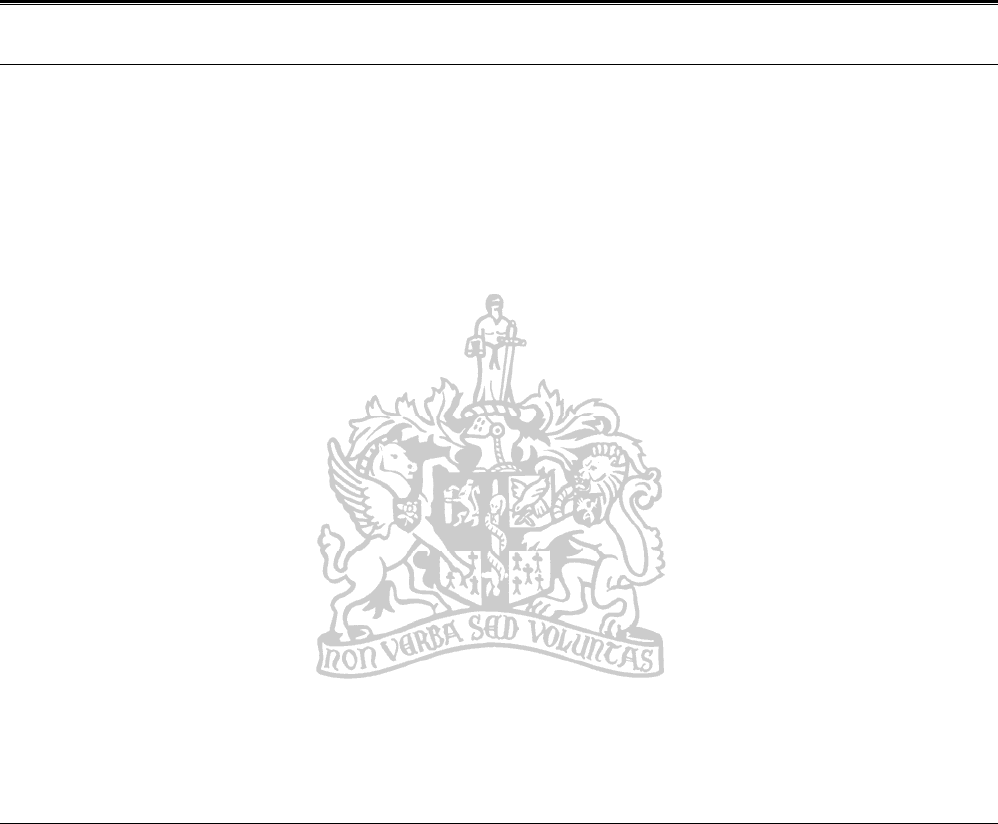
REF: 6302 – AUCKLAND DISTRICT LAW SOCIETY INC. 7
(f) solvency: if a company, that it is solvent according to the meaning of the term in section 4 of the Companies Act
1993;
(g) information: the information provided by the party granting the security in connection to this instrument is true and
accurate and remains true to the date of this instrument and there are no facts or circumstances that have not
been disclosed to the security holder which would make any information untrue, inaccurate or misleading; and
(h) continuation: each representation and warranty in this instrument is deemed to continue for as long as this
instrument is in effect by reference to the facts and circumstances as they exist, except that each reference to
financial statements must be construed as a reference to the latest available financial statements of the relevant
person.
PART 5 COVENANTS RELATING TO LAND
8. INSURANCE
(a) Obligation to insure: The party granting the security must at all times:
(i) insure and keep insured all buildings and insurable improvements on any land that is collateral against fire, all
other risks normally covered by a comprehensive policy, and natural disaster as defined in the Earthquake
Commission Act 1993;
(ii) obtain the insurance from an insurance company approved by the security holder and in the names of the
party granting the security and the security holder for their respective rights and interests;
(iii) if required by the security holder arrange for the insurance company to note the several interests of the party
granting the security and the security holder;
(iv) obtain the insurance for full insurable value and, if the security holder so requires, on normal replacement
terms but if insurance of this type and to this extent is not available in respect of the buildings or improvements
then for such amount and on such terms as the mortgagee may reasonably require to ensure that the building
and improvements are able to be repaired or replaced so that after repair or reinstatement there is no material
reduction in value of the land as that expression is explained in clause 1(h) of this mortgage;
(v) pay all premiums, valuation fees and other sums payable to keep the insurance in force and on request,
immediately deliver to the security holder the receipt or other evidence of payment; and
(vi) allow the security holder (if the security holder so requests) to hold the policy document.
(b) Application of insurance proceeds: If insurance moneys become payable in respect of the destruction of or
damage to any building or other improvements on the land then the security holder may, at the security holder's
sole option, apply the insurance proceeds or direct that they be applied either in or towards rebuilding or repairing
the buildings and improvements or in or towards payment of the secured moneys (even though those moneys may
not have otherwise fallen due). If the security holder exercises the latter option, the party granting the security
may, at any time within 2 months after the insurance proceeds have been so applied, pay off any balance
remaining so secured. Interest will cease to accrue on any principal moneys repaid pursuant to this subclause as
from the date of application or payment (as the case requires).
(c) Obligation to notify security holder of any loss: The party granting the security, immediately on the happening
of loss or damage to the collateral, must notify the security holder of the loss or damage and furnish to the security
holder at the party granting the security’s expense, any necessary proof and do any necessary act to enable the
security holder to obtain payment of the insurance proceeds.
9. USE AND MAINTENANCE OF LAND
The party granting the security must at all times:
(a) pay outgoings: pay all rates, taxes and charges from time to time payable in respect of the land by their due date;
(b) repair and maintain improvements: put and keep in good and substantial repair and condition, all buildings and
other improvements on the land;
(c) not alter or remove improvements without consent: not, without the security holder's prior written consent,
cause or permit any buildings or improvements on the land to be removed, dismantled or structurally altered, in
whole or in part and the security holder may not unreasonably withhold or delay such consent;
(d) permit security holder to access and inspect land: allow the security holder and the security holder's agents, at
any reasonable time, to enter upon the land to view and inspect it or, where applicable, to exercise all or any of the
powers contained in clause 23;
(e) comply with all other obligations: comply with:
(i) all obligations binding on the owner or occupier of the land in respect of the land or any business conducted
on the land; and

REF: 6302 – AUCKLAND DISTRICT LAW SOCIETY INC. 8
(ii) all notices and demands relating to the land or any such business served on the party granting the security or
the security holder,
under any statute, regulation or bylaw; and
(f) comply with all land covenants: do all things and pay all sums required to be done or paid by the occupier of the
land under any covenant to which the land is subject being a covenant positive in effect to which section 303 of the
Property Law Act 2007 applies and the party granting the security will comply with any restrictive covenant to
which the land is subject.
10. COMPLIANCE WITH RESOURCE MANAGEMENT ACT 1991
Any term defined in the Resource Management Act 1991 has the same meaning in this subclause as it has in the
Resource Management Act 1991. "To take a resource management step" means to apply for, request, initiate, notify,
implement, grant or issue (as applicable) a resource consent, a review, change or cancellation of a resource consent or
of a permission deemed to be a resource consent, a change in any plan, an enforcement order or an abatement notice.
(a) Covenants: The party granting the security must at all times:
(i) comply with obligations under the Resource Management Act 1991: in respect of the land, comply with all
obligations binding on the owner or occupier of the land under the Resource Management Act 1991, the rules
of any relevant regional or district plan, the conditions of any resource consent and of any permission deemed
to be a resource consent and any consent notice, bond, enforcement order, abatement notice or other
requirement made or given under the Resource Management Act 1991. This paragraph (ii) does not affect the
generality of subclause (e) of this clause;
(ii) not deal with resource consent: not, without the security holder's prior written consent, transfer, grant a
security interest in, or surrender any resource consent relating to the land;
(iii) not allow any resource consent to lapse: not, without the security holder's prior written consent, by any act
or omission cause or allow the lapse of any right under sections 10, 10A or 20 of the Resource Management
Act 1991 to carry on any non-complying use of or activity on the land; and
(iv) notify security holder of certain events: immediately notify the security holder in writing of the occurrence of
any of the following events or circumstances:
(A) the taking of any resource management step by any party granting the security in relation to the land;
(B) the receipt by any party granting the security of formal notice of the taking by any other person or by any
Court or tribunal of any resource management step affecting or likely to affect the land;
(C) any act or omission which is likely to cause the lapse or cancellation in respect of the land of any resource
consent of any permission deemed to be a resource consent or of any right under sections 10, 10A or 20
of the Resource Management Act 1991;
(D) the lapse of any such right; and
(E) the receipt by any party granting the security of notice of any proposal by any authority to exercise any
compulsory statutory power in respect of the land.
(b) Mitigate any reduction in value of land: If in the security holder's reasonable opinion, an outcome of any event
or circumstance of the kind mentioned in clause 10(a)(iv) has been to materially reduce, or will or might be to
materially reduce, the value of the land or the security holder's security, the party granting the security must take
all reasonable and lawful steps required by the security holder to prevent or mitigate that outcome (including any
appropriate submission, appeal or other objection).
11. UNIT TITLES
This clause applies if the land is or includes a stratum estate under the Unit Titles Act 2010 ("the UTA"). Any term within
this clause 11 which is defined in the UTA has the meaning set out in that Act.
(a) Covenants: The party granting the security must:
(i) pay body corporate levies: duly and punctually pay all moneys from time to time that are payable by the
party granting the security, its representative, agent or tenant, to the body corporate under the UTA or in
accordance with the rules;
(ii) comply with rules (etc.): comply with all other obligations of the party granting the security under the UTA,
Unit Titles Regulations 2011, and the rules;
(iii) ensure rules are enforced against others: take all reasonable steps from time to time necessary to enforce
the obligations of the body corporate and the other owners under the UTA and the rules; and
(iv) give information to security holder: give the security holder such information concerning the land and the
affairs of the body corporate as the security holder requires from time to time.

REF: 6302 – AUCKLAND DISTRICT LAW SOCIETY INC. 9
(b) Insurance Covenants: The party giving this mortgage must, if requested by the mortgagee, effect and maintain a
mortgage redemption policy under section 137 of the UTA for the whole of the sum from time to time secured by
this mortgage and providing cover against such risks as the mortgagee may require. Clause 8(a) will apply (with
any necessary modifications) to such insurance.
(c) Security Holder may vote: On giving written notice to the body corporate the security holder will be entitled to
exercise the party granting the security's voting rights under the UTA and the rules (whether exercisable at a
meeting or by an entry in the body corporate minute book or otherwise).
(d) Pass on notices: The party granting the security will, immediately after its receipt, give the security holder written
notification of having received:
(i) notice of any meeting or resolution to be passed without general meeting of the body corporate at which it is
proposed to move any resolution requiring a unanimous vote for its passing, any resolution altering the rules
or any special resolution, or
(ii) a notice under section 86 of the UTA requiring the party giving this mortgage to sign any document.
(e) Vote in accordance with directions: If the voting rights referred to in clause 11(c) are not exercised by the
security holder, the party granting the security must exercise them in accordance with any written directions given
by the security holder.
(f) Secured moneys payable upon certain events: Notwithstanding anything to the contrary contained in this
instrument or in any other contract or arrangement, the secured moneys will be due and payable by the party
granting the security upon demand if:
(i) any principal unit contained in this instrument is destroyed or so damaged as to be no longer habitable or
usable; or
(ii) an administrator is appointed under section 141 of the UTA.
(g) Security holder to be attorney: The party granting the security hereby irrevocably appoints the security holder
(including the person for the time being entitled to give a receipt or discharge for the secured moneys) (if more
than one, severally) the attorney of the party granting the security at the party granting the security's cost to
receive notice of, attend, vote at and otherwise take part in meetings and other proceedings of the body corporate,
appoint proxies for voting at meetings, sign resolutions passed by entry in the body corporate minute book,
appoint an agent under section 81 of the UTA, and obtain information (including any information required for a
disclosure statement under sections 144 to 153 of the UTA) from the body corporate concerning the land and the
affairs of the body corporate and compliance by the party granting the security with the rules.
12. LEASEHOLD (INCLUDING CROSS-LEASE):
This clause applies if any collateral is, or includes, a leasehold or a licence. If any collateral is, or includes, a licence in
respect of any land, this clause 12 (except for this opening paragraph) must be read as if the expressions "lease",
"lessor", "lessee" and "rent" included a licence, a licensor, a licensee and amounts payable under a licence respectively
and with all other necessary or consequential modifications so that it meets the case of and applies to the mortgaged
licence (as well as a mortgaged lease, if any).
(a) Representation that no existing default: The party granting the security represents and warrants to the security
holder that, as at the date of this instrument, there is no subsisting default by the party granting the security under
the lease and the lease is not liable to forfeiture or cancellation.
(b) Covenants: The party granting the security must:
(i) pay rent and comply with lease: duly and punctually pay the rent payable from time to time and comply with
the terms to be complied with by the lessee under the lease, and keep the security holder indemnified against
all actions, expenses and claims on account of non-payment of the rent or non-compliance with any of the
said terms;
(ii) ensure lessor complies: take all reasonable steps to enforce compliance by the lessor with the lessor's
obligations under the lease and, if this is a transfer of a cross-lease, by the respective lessees of their
obligations under the other cross-leases;
(iii) deliver copies of notices to the security holder: immediately after service of the same on the party granting
the security, serve on the security holder a copy of any notice relating to the lease and given by the lessor
under the Property Law Act 2007 or any enactment in substitution for that Act;
(iv) deliver copies of arbitration submissions: immediately after service of the same on or by the party granting
the security, serve on the security holder a copy of any submission to arbitration of any matter under the lease
and, if this is an instrument of a cross-lease, under any of the other cross-leases;
(v) comply with security holder's directions on arbitration: comply with the security holder's written directions
as to the conduct of any such arbitration;

REF: 6302 – AUCKLAND DISTRICT LAW SOCIETY INC. 10
(vi) renew the lease: do all things and execute all documents that, in the security holder's opinion, is necessary or
expedient to exercise any right of renewal contained in the lease and to secure the registration of a renewal or
renewed lease; and
(vii) deliver instrument renewing lease to security holder: either execute and deliver to the security holder a
valid and registrable instrument granting a security interest in any such renewal or renewed lease having the
same priority, securing the same moneys and containing (with any necessary or consequential modifications)
the same terms as this instrument or procure the entry in the memorial of the renewal or renewed lease of a
statement pursuant to section 117 of the Land Transfer Act 1952.
(c) Appointment of security holder as attorney: The party granting the security hereby irrevocably appoints the
security holder (including the person for the time being entitled to give a receipt or discharge for the secured
moneys)(if more than one, severally) the attorney or attorneys of the party granting the security at the party
granting the security's cost to:
(i) obtain information: obtain information from the lessor concerning the lease and compliance by the party
granting the security with its terms;
(ii) enforce obligations: enforce any of the obligations mentioned in clause 12(b)(ii);
(iii) renew lease: do all things and execute all documents necessary or expedient in the security holder's opinion
to obtain pursuant to the lease an assurance of the lessor's reversion or a new or renewed lease in place of
the lease (whether or not for the same term or at the same rent or containing the same terms);
(iv) execute security over new lease: give and execute an instrument of any such reversion or new or renewed
lease, having the same priority, securing the same moneys and containing (with any necessary and
consequential modifications) the same terms as this instrument including this clause;
(v) apply to bring down encumbrances: make any request to the District Land Registrar under sections 117 or
118A of the Land Transfer Act 1952;
(vi) apply to Court for relief against forfeiture: do all things and execute all documents necessary or expedient
in the security holder's opinion to apply for and obtain from the Court any form of relief in relation to the lease;
(vii) arbitrate or litigate: conduct, prosecute or compromise any arbitration or litigation relating to the lease or, if
this is an instrument of a cross-lease, to any of the other cross-leases;
(viii) receive compensation: recover and give receipts and discharges for any compensation, damages or other
moneys for any cause including the value of improvements payable by any person purchasing any right to a
lease of the land;
(ix) exercise rights under lease: give any notice and exercise any right or power under the lease and, if this is an
instrument of a cross-lease, under any of the other cross-leases;
(x) appoint further attorneys: appoint and remove any person as a substitute attorney; and
(xi) sign and register any power of attorney: execute and register any instrument necessary or expedient in the
security holder's opinion for the purposes of this subclause.
(d) Secured moneys payable if lease cancelled or invalid: Notwithstanding anything to the contrary contained in
this instrument or in any other contract or arrangement, the secured moneys will be due and payable by the party
granting the security upon demand if the lease is cancelled or otherwise comes to an end or if the lease is or
becomes invalid.
13. FARMING PROVISIONS
This clause applies if any collateral being land is used or is suitable for use for agricultural, pastoral, orchard or other
farming purposes.
The party granting the security must:
(a) clear weeds: keep the land clear of all blackberry, gorse, noxious plants and animal and insect pests;
(b) control disease: take all reasonable steps to control disease in crops, pastures, plants and stock on the land;
(c) farm and manage: farm and manage the land in accordance with established farm management practice and
cultivate and keep cultivated such part of the land as is or has been usually cultivated; and
(d) not change type of farm without consent: not (without the security holder's prior written consent) make any
material change in the type of farming conducted on the land or permit a security interest to attach to crops without
the written consent of the security holder.
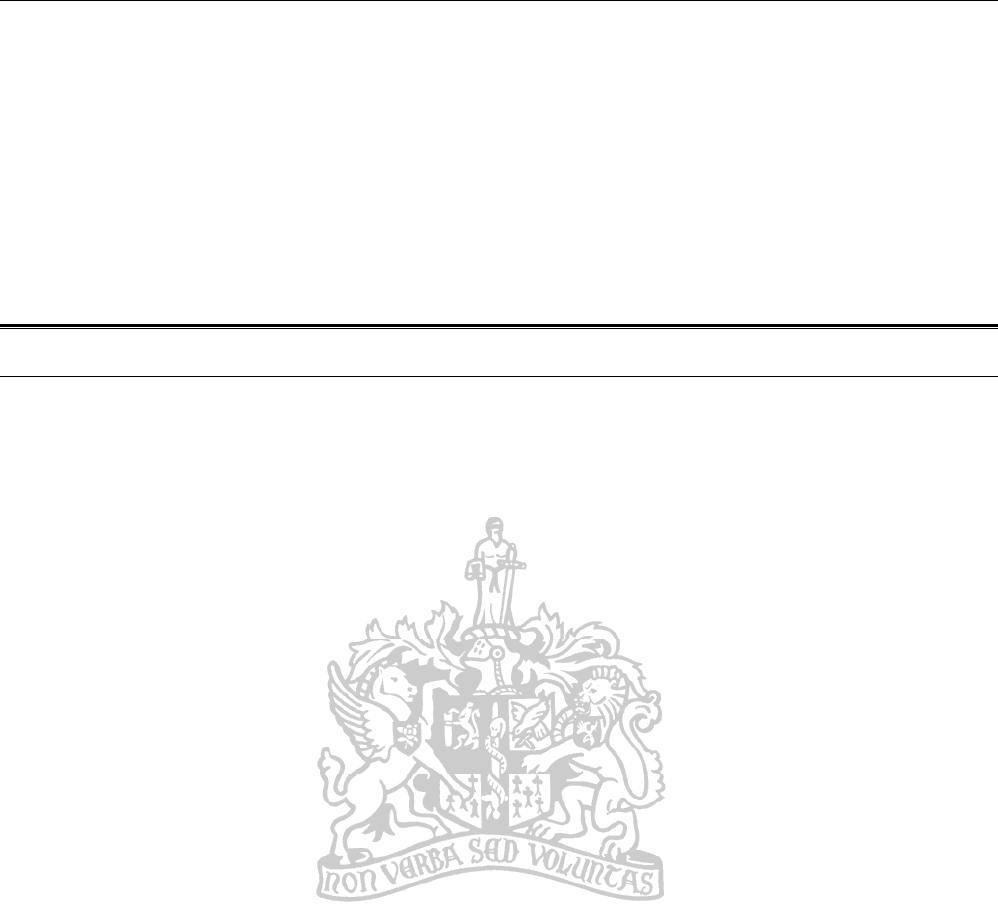
REF: 6302 – AUCKLAND DISTRICT LAW SOCIETY INC. 11
14. BUILDING AND OTHER WORKS
This clause applies if any development works are in the course of being, or are intended to be, carried out.
(a) Undertake Development: The party granting the security must proceed with, immediately and continuously, the
development works until their completion in a workmanlike manner and in accordance with plans and
specifications submitted to and approved by the security holder and/or security holder and, where applicable, in
accordance with a building permit or other approval or consent issued by the relevant authority.
(b) Security holder may complete if default: In exercising, in relation to clause 14(a), the powers contained in
clauses 23 and 25, the security holder may complete the development works with such variations to the plans and
specifications as the security holder considers expedient and may do any thing necessary or expedient in the
security holder's opinion to remedy, prevent or mitigate any deterioration of the development works.
(c) Fixtures to be part of land: The parties agree that once personal property has been fixed to the development
works so that it may be regarded fixed for the purpose it was designed, then it will be regarded as part of the land.
PART 6 COVENANTS RELATING TO PERSONAL AND OTHER PROPERTY
15. POSITIVE COVENANTS
This clause applies if any of the collateral is personal property or other property.
(a) Positive Covenants: The party granting the security must from time to time and at all times during the
continuance of this instrument:
(i) pay outgoings: duly and punctually pay all outgoings including, taxes, assessments, insurance premiums, all
security interest charges, encumbrances liens and claims that rank or could rank in priority to the security
interest and rent becoming due and payable in respect of the collateral, and will, upon request, produce to the
security holder the receipts for all such payments;
(ii) repair and maintain: keep all the collateral in good order and repair;
(iii) allow security holder access: permit the security holder and any person authorised by the security holder at
all reasonable times to inspect and examine any part of the collateral, books of account and any records
necessary for such inspection, and will afford them such reasonable assistance as may be required for any
such purposes and to reimburse and indemnify the security holder for all costs, charges, expenses and legal
fees and disbursements that may be incurred by the security holder;
(iv) maintain accounts: cause proper accounts (including a profit and loss account and balance sheet) to be kept
by a qualified person and make copies of those accounts available to the security holder upon request;
(v) deliver accounts: deliver to the security holder within 2 months (or such further time as the security holder
may allow) after the close of each financial year of the business or undertaking, a copy of the profit and loss
account and the balance sheet as at the end of such financial year and copies of any other documents
required by law of a party granting the security, duly signed and, if required by the security holder, audited;
(vi) deliver business information: furnish to the security holder any other information relating to the business or
undertaking which the security holder reasonably requires from time to time and at the request of the security
holder to at any time to execute and deliver such further and other documents and instruments and to do all
acts and things as the security holder in its absolute discretion requires in order to confirm and perfect and
maintain the perfection of any security interests in favour of the security holder on any of the collateral;
(vii) deliver legal information: promptly deliver to the secured party any details the party granting security
acquires knowledge of regarding any litigation, arbitration, administrative proceedings or material notice
affecting or that have the potential to adversely affect the collateral;
(viii) taxes: submit proper returns of income to the taxation authorities no later than the appropriate dates fixed by
statute and pay and discharge all taxes assessments and government charges payable by it or on its assets
prior to the date upon which penalties become payable, except only to the extent that those taxes,
assessments or governmental charges are being contested in good faith by appropriate proceedings and
adequate reserves are set aside for their payment;
(ix) comply with laws: comply with all laws that apply to the party granting the security and its business, including
without limitation the Companies Act 1993 and the Financial Reporting Act 1993, and Personal Property
Securities Act 1999;
(x) defend title to collateral: defend its right, title and interest in the collateral for the benefit of the security
holder against the claims and demands of all parties;
(xi) ensure security interest is effective: fully and effectively maintain and keep maintained the validity and
effectiveness of the security interest;
(xii) appoint authorised person: if the person granting the security is a company it will at all times ensure that an
authorised person is appointed by it for the purposes of the Personal Property Securities Register;

REF: 6302 – AUCKLAND DISTRICT LAW SOCIETY INC. 12
(xiii) notify security holder of certain events: notify the security holder promptly of:
(A) any change in the information contained in this instrument relating to the party granting the security in
particular its address, business or the collateral including without limitation any change of name or
address of the party granting the security and any change in location of the collateral - such change is to
be notified to the security holder seven days prior to the change taking effect; or
(B) the details of any material acquisition or repossession of the collateral by any party; or
(C) the details of any additions to the collateral; or
(D) any material default by any account borrower in payment or other performance of his or her obligations to
the party granting the security with respect to account receivables; or
(E) the details of any claims, arrest, seizure, detention, distraint, levy of execution or litigation threatened or
litigation affecting the party granting the security or the collateral;
(xiv) prevent collateral accession: prevent the collateral, other than inventory sold or leased in the ordinary
course of its business, from being or becoming an accession to property that is not included as collateral;
(xv) deliver title and other documents to security holder: deliver to the security holder from time to time
promptly upon written request any:
(A) document of title, negotiable instruments, investment securities and chattel paper representing or relating
to the collateral;
(B) all records, ledgers, reports, correspondence, schedules, documents, and other writings relating to the
collateral for the purpose of inspecting, auditing or copying;
(C) all financial statements prepared by or for the party granting the security;
(D) all policies and certificates of insurance relating to the collateral; and
(E) any information concerning the collateral, any accommodated person, that the party granting the security
as the security holder may reasonably request; and
(xvi) preferential claims: upon the reasonable request of the security holder, information on any indebtedness that
could in any circumstances constitute a preferential claim as referred to in the Seventh Schedule of the
Companies Act 1993, section 30 of the Receiverships Act 1993 or section 153 of the Property Law Act 2007;
(xvii) deliver notice of change of ownership: provide the security holder with notice of any change in ownership of
any collateral;
(xviii) comply with additional covenants: observe and perform the additional covenants if any as set out in any
schedule attached to this instrument; and
(xix) obtain all necessary consents: do all things necessary to effect all laws, directives and consents that are or
may become required to perform or comply with its obligations under this instrument.
(b) No sale of collateral without consent: The party granting the security must not, except as provided in this
instrument, without the prior written consent of the security holder:
(i) sell collateral: sell lease or otherwise dispose of the collateral; or
(ii) release collateral: release, surrender or abandon possession of the collateral; or
(iii). move collateral out of the jurisdiction: move or transfer the collateral from the jurisdiction in which the security
interest has been perfected.
(c) When security is a purchase money security interest: The party granting the security covenants that to the extent
that any moneys, credit or other consideration provided by the security holder has enabled the party granting the
security to purchase or acquire rights in any personal property or assets, the security interest is and will remain a
purchase money security interest.
(d) Right to use and enjoy collateral: Unless the party granting the security is in default under this instrument the party
granting the security may at any time and without the consent of the security holder possess, operate, collect, use,
enjoy and deal with the collateral in the ordinary course of the party granting the security’s business in any manner
not inconsistent with the provisions of this instrument.
(e) Not allow another financing statement without consent: The party granting the security must not agree to allow
any person to file a financing statement over any of the collateral secured by this instrument without the prior written
consent of the security holder; and must notify the security holder immediately if it becomes aware of any person
taking any steps to file a financing statement against any of the party granting the security's assets which are secured
by this instrument.
(f)
Rights subordinated to those of the security holder: The party granting the security covenants with the security
holder that any rights it may have under the Personal Property Securities Act 1999 are subordinated in point of
priority and right of repayment to the security holder.

REF: 6302 – AUCKLAND DISTRICT LAW SOCIETY INC. 13
16. NEGATIVE COVENANTS
(a) Not reduce value or render invalid: The party granting the security must not do, omit to do or allow to occur anything
which may render any of the collateral or a security interest created under this instrument invalid or unenforceable or
liable to forefeiture or cancellation or which may cause or contribute to a deterioration in the value of the collateral or
which may otherwise adversely affect the security of the security holder under this instrument.
(b) Negative Covenants if a company: If this instrument is a general security agreement creating or intended to create a
security interest in all of the property of the party granting the security and that party is a company then, during the
continuance of this instrument, the party granting the security covenants that it will not, without first obtaining on
each occasion the prior written consent of the security holder:
(i) approve any transfer of shares in the party granting the security or forfeit any shares; or
(ii) make an allotment of shares upon any increase in capital; or
(iii) call up any unpaid capital; or
(iv) pass any resolution to the effect that any part of the capital may be called up only in the event of its dissolution
or liquidation; or
(v) consent to or become party to any arrangement whereby the liability of its shareholders on any of its present
or future shares will be reduced or released, or whereby any of the party granting the security's property will
be applied or used in any manner in reduction or extinction of the liability of its shareholders on their
contributing shares; or
(vi) reissue any general security agreements (or debentures) redeemed by it despite any statutory enactment or
rule of law or equity to the contrary; or
(vii) purchase or subscribe for shares or securities in another party granting the security, make advances to any
person or party granting the security, or assume or guarantee the liabilities of any person or party granting the
security, or grant an indemnity in favour of any person or party granting the security; or
(viii) take any steps to amalgamate with any party granting the security; or
(ix) pay or declare dividends.
17. LIVESTOCK
This clause applies if any of the collateral is or includes livestock. The party granting the security agrees to:
(a) viewing: on seven days written notice, provide all reasonable assistance to enable the security holder or the
agents appointed by the security holder to enter into and on the lands or premises where the livestock collateral is
located to view and assess their state and condition;
(b) number: not change the quality, character or description of the livestock save in the ordinary course of business
but no sale will be made to reduce the number of the stock described in this instrument;
(c) brand: ensure that all livestock subject to this instrument carry at all times only the brands, earmarks, and marks
specified in this instrument;
(d) possession and health: for the duration of this instrument, adopt and use all due and proper means for keeping
and maintaining all stock subject to this instrument to ensure that the livestock is not abandoned or otherwise
taken from the possession of the party granting the security, in a clean and healthy condition, and free of disease;
(e) accounting: every year or on demand render onto the security holder an accounting in writing of the number,
ages, and sexes of the livestock for the time being subject to this security interest and their locations;
(f) pay: pay all licence fees, head moneys, and other outgoings and payments and perform and observe all rules,
regulations, and conditions which are due, payable, or observable;
(g) location: ensure that the livestock are kept at all times on the land described in this instrument and that such
livestock are not removed from the said land without the written consent of the security holder;
(h) lease: not enter into an agreement for lease or use of any of the livestock by any other person except with the
prior written consent of the security holder;
(i) value of livestock: if in the reasonable opinion of the security holder, the fair market value of the livestock has
declined, the party granting the security will on demand provide the security holder with additional security to the
satisfaction of the security holder or repay all or part of the secured moneys; and
(j) security interest in wool: not grant a security interest in unshorn wool from any of the livestock.

REF: 6302 – AUCKLAND DISTRICT LAW SOCIETY INC. 14
18. INSURANCE
(a) Obligation to insure: The party granting the security must at all times:
(i) insure and keep insured all personal and other property that is of an insurable nature against fire, all other
risks normally covered by a comprehensive policy (which in the case of motor vehicles must include accident,
collision, theft and third party claims), and natural disaster as defined in the Earthquake Commission Act 1993;
(ii) obtain the insurance from an insurance company approved by the security holder and in the names of the
party granting the security and the security holder for their respective rights and interests;
(iii) if required by the security holder arrange for the insurance company to note the several interests of the party
granting the security and the security holder;
(iv) obtain the insurance for full insurable value and, if the security holder so requires, on normal replacement
terms;
(v) pay all premiums, valuation fees and other sums payable to keep the insurance in force and on request,
immediately deliver to the security holder the receipt or other evidence of payment; and
(vi) allow the security holder (if the security holder so requests) to hold the policy document.
(b) Application of insurance proceeds: If insurance moneys become payable in respect of the destruction of or
damage to any property then the security holder may, at the security holder's sole option, apply the insurance
proceeds or direct that they be applied either in or towards making good any such loss or damage or in or towards
payment of the secured moneys (even though those moneys may not have otherwise fallen due). If the security
holder exercises the latter option, the party granting the security may, at any time within 2 months after the
insurance proceeds have been so applied, pay off any balance remaining so secured. Interest will cease to accrue
on any principal moneys repaid pursuant to this sub clause as from the date of application or payment (as the case
requires).
(c) Obligation to notify security holder of any loss: The party granting the security, immediately on the happening
of loss or damage to the collateral, must notify the security holder of the event and furnish to the security holder at
the party granting the security’s expense, any necessary proof and do any necessary act to enable the security
holder to obtain payment of the insurance proceeds.
(d) Rights of subrogation and counterclaim are waived: The party granting the security will ensure that the
insurer’s rights of subrogation against the security holder and all rights the insurer may have to set off or
counterclaim or any other right to make a deduction or withholding they may have against the party granting the
security are waived.
PART 7 DEFAULT AND ENFORCEMENT
19. WHEN DEFAULT OCCURS
Default occurs if:
(a) breach of obligation to pay money: any party granting the security fails to pay any part of the secured moneys in
accordance with clause 3(a)(i) and 3(b);
(b) breach of non-monetary obligation:
(i) any party granting the security fails to comply with any of the other obligations set out in clause 3(a)(ii) and
3(a)(iii) and, unless the agreement or arrangement relating to the obligation provides otherwise, where such
failure is capable of remedy, the failure continues for a period of seven (7) days after the security holder has
served on the party granting the security, a notice requiring it to remedy such failure; or
(ii) a default (however described) occurs in any agreement, deed or document under which the party granting the
security has obligations to the security holder (other than an agreement or arrangement referred to in clause
19(b)(i) and, unless the agreement deed or document under which that default occurs provides otherwise,
where such default is capable of remedy, the default continues for a period of seven (7) days after the security
holder has served on the party granting the security a notice requiring it to remedy such failure;
(c) party granting the security requests enforcement: the party granting the security asks the security holder to
appoint a receiver over the collateral or any part of the collateral;
(d) change relating to land: any part of the land:
(i) is sold, transferred, exchanged, leased, or possession is relinquished or the land is otherwise disposed of or any
part of it or the party granting the security agrees to do any of those things without the security holder's prior
written consent; or
(ii) any part of it is taken under any statute; or
(iii) any part of it is sold under a power of sale contained in any other instrument or charge affecting the land; or

REF: 6302 – AUCKLAND DISTRICT LAW SOCIETY INC. 15
(iv) suffers a material reduction in its value as determined in accordance with clause 1(h);
(e) change relating to collateral other than land
(i) in respect of any part of the collateral other than land the party granting the security sells, transfers,
exchanges, leases, parts with possession of or otherwise disposes of, removes, destroys, mortgages,
charges, grants a security interest in, encumbers or grants a lien over, any of that collateral, or agrees to or
permits any of these things to happen, other than:
(A) the sale of stock-in-trade in the ordinary course of business at full market value; and
(B) the replacement of motor vehicles, plant, machinery, equipment, fittings and fixtures with other assets of a
similar type and value that are appropriate to the party granting the security's business; or
(ii) any execution is levied or issued against any part of the collateral; or
(iii) any person having an instrument, charge or other security interest over the party granting the security or any
of the collateral appoints a receiver or otherwise enforces or seeks to enforce its security; or
(iv) without the prior written consent of the security holder, the party granting the security creates, grants or
permits to exist any security interest in, charge, encumbrance, lien on or claim against any of the collateral
which ranks or could in any event rank in priority to or pari passu with any of the security interests created by
this instrument and if any holder of any other security interest charge encumbrance or lien tries to enforce or
realise such security interest, charge, encumbrance, lien or claim; or
(v) a change demand is entered against the security holder or its agent in relation to the collateral; or
(vi) in the reasonable opinion of the security holder, a material adverse change occurs in relation to the collateral;
(f) change to a company granting the security: any party granting the security is a company and:
(i) there is a material change in the control of the company as determined in accordance with clause 1(g); or
(ii) that party becomes insolvent or in the opinion of the security holder it appears from any balance sheet or other
company record that the party is insolvent or is unable to pay its debts within the meaning of section 287 of the
Companies Act 1993; or
(iii) a resolution is passed or an order made for the appointment of a liquidator to the party granting the security, or a
receiver, liquidator, provisional liquidator or statutory manager or other such similar functionary is appointed in
respect of the party granting the security, or any of the collateral and/or land; or
(iv) that party purchases or redeems or agrees to purchase or redeem any of its shares, or provides or agrees to
provide financial assistance either directly or indirectly for those purposes; or
(v) a change of name is entered into the Companies Register without the written consent of the security holder;
(g) change to a natural person granting the security: any party granting the security is a natural person and dies,
changes their name without the written consent of the security holder, becomes bankrupt or in the opinion of the
security holder it appears from any balance sheet or other record of the party granting the security that the party
granting the security has committed an act of bankruptcy;
(h) cessation of business: the party granting the security ceases or threatens to cease to carry on its business;
(i) liability: the party granting the security acts so that it contravenes any law or incurs legal liability or if it contravenes
any part of this instrument including any collateral guarantee or agreement or if litigation, arbitration or administrative
proceeding is current, pending or to its knowledge is threatened.
20. RIGHTS AND POWERS OF SECURITY HOLDER ON DEFAULT
(a) Rights and powers generally: If default occurs, the security holder may at any time or times thereafter, in
addition to any rights, remedies or powers otherwise conferred upon the security holder by law, exercise all or any
of the following rights and powers separately or any two (2) or more of them concurrently.
(i) call up the balance of the secured moneys in accordance with clause 21; or
(ii) remedy the default in accordance with clause 22; or
(iii) in respect of personal property, sell or enter into possession of that property in accordance with clause 24; or
(iv) in respect of land, sell, enter into possession of or appoint a receiver of rental income of that land in
accordance with clause 23; or
(v) in respect of all collateral, appoint a receiver of all or any part of the collateral in accordance with clause 25; or
(vi) obtain judgment and enforce such judgment against the party granting the security (and if more than one all or
any one of them) for all of the secured moneys or if the amount realised from the exercise of any of the security
holder's rights and powers is not sufficient to pay the secured moneys in full, the amount of such deficiency.
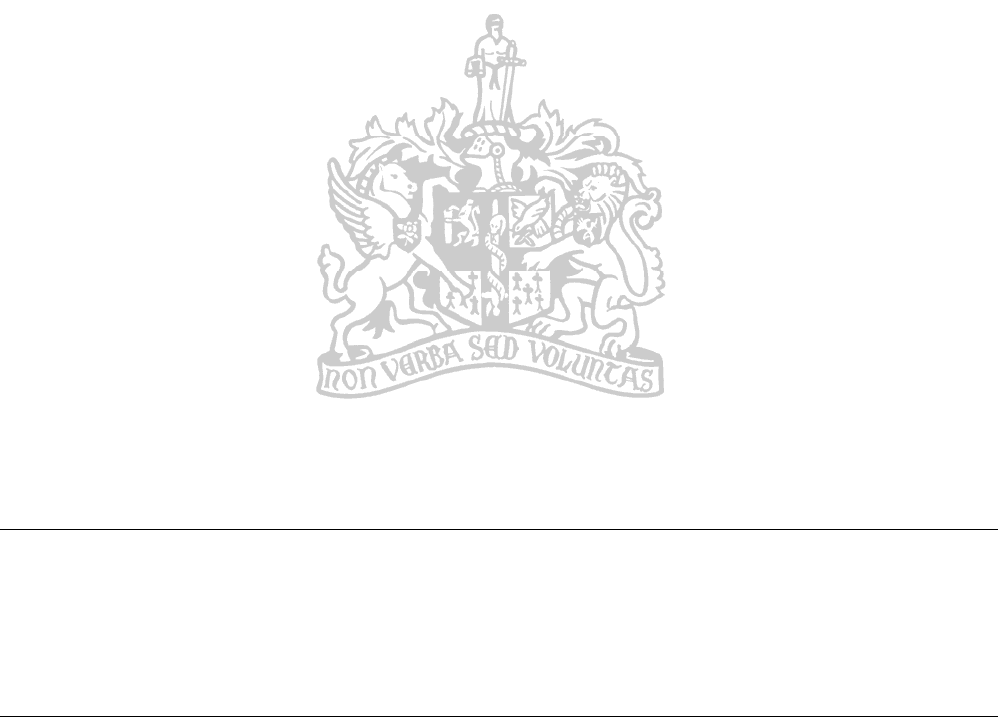
REF: 6302 – AUCKLAND DISTRICT LAW SOCIETY INC. 16
(b) Delay does not affect exercise of powers: The security holder's rights under this instrument will not be affected
by any delay in exercising them (whether or not the security holder knows that they have become exercisable).
The security holder may only be held to have acquiesced in or waived any matter in relation to this clause if and to
the extent that the acquiescence or waiver is expressed in writing.
(c) When Notice required: Except as required by law or the terms of this instrument, the security holder need not
give any notice before exercising all or any of its rights and powers following a default .
(d) Persons dealing with security holder: No person dealing with the security holder (or any receiver appointed by
the security holder) exercising any of these rights and powers will be:
(i) not answerable for any loss: answerable for the loss, misapplication or non-application of any money paid to
the security holder, or be obliged or concerned to see to its application; or
(ii) not obliged to enquire: obliged or concerned to enquire whether any default has been made, whether any
notice has been given, whether the right or power has been exercised has become exercisable or otherwise
as to the necessity, expediency, regularity or propriety for or of the action taken by the security holder or the
receiver or be affected by notice that no such default has been made, that no notice has been given, that the
right or power has not become exercisable or that the exercise of that right or power is otherwise
unnecessary, inexpedient, irregular or improper.
(e) Relationship with other securities held: This instrument is collateral with each and every other security held by the
security holder for all or any part of the secured moneys and secures all amounts owing by the party granting the
security to the security holder. Default under the provisions of such collateral securities will be a default under this
instrument and remedies of the security holder under such collateral securities and this instrument will be collateral and
co-existent and may be exercised at the same time or at different times and in any order and accordingly the security
holder may:
(i) enforce this instrument without first having recourse to any other securities or rights; or
(ii) exercise the security holder's remedies under each security for the secured moneys separately or under any
two (2) or more of them concurrently; or
(iii) exercise the rights and powers at any time and will not be liable to the party granting the security either
because the security holder waited or delayed the exercise of any right or power, or exercised any right or
power without delay or waiting any time; or
(iv) agree to suspend the exercise of any right or power for any period and on such terms as the security holder
may elect without the need to give any further notice of intention to exercise that right or power at the end of
the period of suspension.
(f) Rights once acquired are not lost: Once acquired, a security holder will not lose a right or power unless the
security holder agrees in writing to waive or release it.
(g) Costs of default are payable and are secured: All sums expended by the security holder in the exercise of the
security holder's rights and powers following a default or in exercising or enforcing or attempting to exercise or
enforce any power, right or remedy contained or implied in this instrument will be:
(i) payable by the party granting the security to the security holder upon demand, and
(ii) secured by this instrument together with interest computed from the respective dates on which those sums are
expended at the prescribed interest rate.
This clause does not limit any other term of this instrument relating to costs; nor is it limited by any other such term.
21. ACCELERATING PAYMENT OF SECURED MONEYS ON DEFAULT
If default occurs, the secured moneys will become due and payable by the party granting the security in
accordance with the provisions in any agreement relating to their payment or, to the extent any notice is required
by law to be given before the secured moneys become payable, immediately on expiry of the relevant notice
period, without the need for any further notice or demand together with interest calculated at the prescribed
interest rate for a period of one month in addition to interest to the date of repayment of the secured moneys.
22. PAYMENT OF MONEYS BY SECURITY HOLDER
If the party granting the security fails to do any thing or pay any sum which it has agreed to do or pay, the security
holder may (but is not obliged to) do such thing or pay such sum, in whole or in part which, in the security holder's
opinion, is necessary or expedient to rectify the consequences of the default. Any payment by the security holder
is without prejudice to the rights and powers of the security holder under any other provision in this instrument or
any secure agreement.

REF: 6302 – AUCKLAND DISTRICT LAW SOCIETY INC. 17
23. RIGHTS AND POWERS RELATING TO LAND
(a) Powers: At any time after default, the security holder may (subject to expiry of any applicable notice period
required by law) do any or all of the following:
(i) enter into possession: enter into possession of the land;
(ii) sell: sell the land or any part of it; and
(iii) appoint receiver of income: by writing appoint any person to be a receiver of the income of the land or any
part of the land.
(b) Exercise of power of sale: In respect of any sale, the security holder:
(i) sell in whole or part: may sell the mortgaged property on the conditions set out in section 178 of the Property
Law Act 2007, or any of them;
(ii) buy in: may buy in the mortgaged property or any part of it in accordance with section 196, or an order of a
court made under section 200, of the Property Law Act 2007;
(iii) cancel sale and resell: may cancel any contract for sale, may resell the mortgaged property without being
answerable for any loss or diminution in price and may allow or refund to the purchaser any sum which the
purchaser may be entitled to upon such cancellation and to that extent may reverse any application of sale
proceeds previously made;
(iv) rights against purchasers: may recover the expenses for the exercise or attempted exercise by the security
holder of any rights and powers against any purchaser, with interest, as provided by clause 3(b);
(v) only account for what is received: is not obliged to account for or apply any sale proceeds unless and until
they are actually received by the security holder so that the party granting the security will remain liable for all
moneys owing under this instrument beyond those actually so received;
(vi) not responsible for acts of purchaser: is not responsible for any thing done or omitted by any purchaser nor
is the security holder bound to enforce any remedy under any contract of sale;
(vii) may sign and give receipts: may execute assurances, give effectual receipts for the purchase money and do
all such other acts and things for completing the sale as the security holder may think proper; and
(viii) incidental powers: may exercise such other incidental powers in relation to the sale as are conferred upon
security holders by law.
(c) Application of proceeds: The security holder must apply the money arising from any sale in accordance with
section 185 of the Property Law Act 2007.
(d) Rights of receiver of income: In relation to any receivership pursuant to this clause 23
(i) agent of party granting the security: the receiver will be deemed to be the agent of the party granting the
security who will be solely responsible for the receiver's acts or defaults whether occurring in relation to the
purposes and matters mentioned in this clause or otherwise;
(ii) may be removed: the security holder may from time to time in writing remove any receiver and appoint a
substitute;
(iii) demand income: the receiver may demand, recover (by action or otherwise) and issue receipts for the
income of the land or any part thereof and may exercise any other powers conferred on the receiver by law;
(iv) receiver's remuneration: the receiver will be entitled, by way of remuneration, to a commission at such rate
as is specified in the receiver's appointment and if no rate is so specified then at the rate of 6 per cent of the
gross amount of all money received;
(v) repairs by receiver: the receiver may, out of the money received, make any payment on account of any
money secured by any prior instrument or charge, may repair and maintain any buildings, improvements or
effects (whether affixed to the land or not), may keep such buildings, improvements or effects insured against
such risks as the receiver considers appropriate, may pay all management expenses and may do any thing
which the receiver considers necessary or expedient in order to procure continued receipt by the receiver of
the income of the land;
(vi) application of moneys received: the receiver must apply all money received subject to the claims of all
secured and unsecured creditors (if any) ranking in priority to any security interest created by this instrument:
(A) costs: first in payment of all costs, charges and expenses (including tax and legal costs as between
solicitor and client) of and incidental to the appointment of the receiver and the exercise by the receiver
or the security holder of all or any of the powers under the general security agreement including the
receiver's reasonable remuneration;
(B) preferential claims: second in payment of preferential claims (if any) payable by the receiver under
the provisions of section 30 of the Receiverships Act 1993;
(C) secured moneys: third in payment to the security holder of all the secured moneys; and

REF: 6302 – AUCKLAND DISTRICT LAW SOCIETY INC. 18
(D) surplus: fourth in payment of any residue to those entitled to any surplus; and
(vii) appointment of receiver is not entry into possession: neither the appointment of a receiver nor the
exercise of any of the powers contained in this clause 23 will be an entry into possession of the land by the
security holder.
24. RIGHTS AND POWERS RELATING TO PERSONAL PROPERTY
(a) Powers: At any time after default, the security holder may (subject to the expiry of any applicable notice period
required by law) in respect of personal property:
(i) take possession: enter upon and take and keep possession of all or any of the collateral and receive and give
receipts for the rents and profits thereof until either:
(A) the security holder’s proposal to retain that personal property in satisfaction of the debt has been
accepted in accordance with section 123 of the Personal Property Securities Act 1999; or
(B) the same is sold under the power of sale hereby conferred or the obligations hereby secured have been
fully paid; or
(ii) sell, call in and convert to money: either with or without taking possession sell, call in, collect and convert into
money the collateral or any part thereof in such manner and for such consideration as the security holder may
think fit and upon any such sale the security holder may sell any part of the collateral either by public auction or
by private contract on such terms as the security holder may think fit, for immediate or deferred consideration,
and may buy in or rescind or vary any contract of sale and may re-sell without being responsible for any loss; or
(iii) collect unpaid capital: collect any unpaid capital and call up any uncalled capital for the time being hereby
charged; and
(iv) compromise: compromise and effect compositions and for any of the purposes aforesaid, execute and do
anything as the security holder may think fit or which, in relation to the collateral, the party granting the security
could do.
(b) Application of moneys: All money received by the security holder in exercise of its powers under this clause or
otherwise must be applied in accordance with this instrument and sections 116A and 117 of the Personal Property
Securities Act 1999 and section 152 of the Property Law Act 2007 (as applicable).
(c) Waiver of right to statement of account: The party granting the security hereby waives the right to receive a
statement of account under section 116 of the Personal Property Securities Act 1999.
(d) Additional powers if a business: If the collateral includes all or any part of the assets and undertaking of a party
granting this security that are used in the carrying on of a business, then in addition to the rights and powers set out
in clause 24(a), the security holder may at any time after default exercise such of the powers set out in clause 25 that
are not included in clause 24(a).
25. RECEIVER
(a) Security holder's powers: At any time after default, the security holder may:
(i) appoint: appoint in writing any person or persons to be receiver of all or any of the collateral;
(ii) remove: in the same way remove any receiver so appointed and appoint another receiver in the receiver's
place; and
(iii) agree remuneration: from time to time fix the remuneration of any receiver and determine the conditions
upon which the receiver holds office.
(b) Receiver agent of party granting the security: Any receiver appointed by the security holder under clause 25(a)
will be the agent of the party granting the security and the party granting the security alone is responsible for the
receiver's acts and defaults and for the receiver's remuneration.
(c) Powers of Receiver: Every receiver so appointed has (subject to the expiry of any applicable notice period
required by law) the following powers to:
(i) take possession: take possession of the collateral and to exercise and enforce all or any of the powers,
rights, remedies and charges of the security holder in respect of the collateral in each case either immediately
upon appointment or at any time thereafter;
(ii) carry on business and borrow: carry on any business of the party granting the security and if necessary to
borrow or raise any moneys which the receiver may require for that purpose and to secure the same with
interest by instrument or charge in priority or subsequent to the secured moneys and otherwise as the receiver
may consider expedient;

REF: 6302 – AUCKLAND DISTRICT LAW SOCIETY INC. 19
(iii) repair and maintain: make and effect all purchases, repairs and insurance and do all other acts which the
party granting the security might do in the ordinary conduct of its business as well for the protection as for the
improvement of the collateral;
(iv) appoint agents: appoint, discharge, and if thought fit, re-appoint solicitors, accountants, managers, officers
and agents for the purposes of this instrument at such salary or remuneration as the receiver may determine
after consultation with the security holder;
(v) sell collateral: sell all or any part or parts of the collateral in such manner and on such terms and conditions
as the receiver thinks fit;
(vi) leasing powers: let or bail all or any part of the collateral for such term at such rent and upon and subject to
such terms and conditions as the receiver thinks fit;
(vii) compromise: compromise, submit to arbitration or to any other dispute resolution process, and settle any
accounts, claims, questions or disputes by or against the party granting the security or touching or concerning
the business of the party granting the security in any proceeding;
(viii) proceedings: take and prosecute, defend, compromise or settle such proceedings and arbitration as the
receiver thinks necessary or expedient and to use the name of the party granting the security in any
proceeding;
(ix) sign and give receipts: give valid receipts for all moneys and execute and do all assurances, instruments,
acts, deeds, matters and things which the receiver thinks proper;
(x) sign on behalf of the party giving security: execute in the name and on behalf of the party granting the
security all mortgages, transfers, assignments, leases, bailment, deeds and assurances necessary to vest in
any security holder, purchaser, assignee, lessee or bailee the whole or any part of the collateral which may be
mortgaged, sold, assigned, let or bailed and to execute all such other deeds, instruments and writings in
relation to any of the powers given by this instrument or at law as may in the receiver's opinion be necessary
or expedient;
(xi) act in the name of the party giving security: use the name of the party granting the security for all or any of
the purposes of this clause 25 including all its subclauses;
(xii) vary contracts: assent to any modifications of any contract or arrangement which may then be subsisting in
respect of the party granting the security's business or any part of the collateral;
(xiii) enforce rights: exercise and enforce all such powers, rights, remedies and authorities as the party granting
the security itself might exercise over or in relation to its property and assets whilst a going concern and
notwithstanding that the party granting the security may be in the process of liquidation;
(xiv) act as if owner of collateral: do or cause to be done such acts and things respecting the business and the
collateral as the receiver might do or cause to be done if the receiver had absolute ownership of the collateral
and carried on the business for the receiver's own benefit without being answerable for any resultant loss or
damage;
(xv) delegate: delegate all or any of the powers conferred upon the receiver by this instrument at any time or
times;
(xvi) retain moneys for receiver's expenses: retain out of any moneys received by the receiver any moneys due
for the receiver's expenses and remuneration in respect of the receiver's services as receiver; and
(xvii) call up capital: call up all or any portion of the unpaid capital of the party granting the security and/or to
enforce the payment of any calls.
(d) Powers in addition to other powers: The powers described in this instrument do not limit the powers given to the
receiver by the Receiverships Act 1993.
(e)
Receiver granted power of attorney: The party granting the security hereby for valuable consideration
irrevocably appoints the receiver to be the attorney of the party granting the security for it and in its name and on
its behalf to do anything in relation to this instrument or referred to or arising from the provisions of this clause 25 as the
receiver thinks necessary, desirable or expedient.
(f) Receiver not mortgagee in possession: Neither the security holder nor the receiver is liable to account as a
mortgagee in possession, or for anything except actual receipts, or be liable for any loss on realisation, or for any
accidents occurring in the operations carried on, or for any negligence, default or omission, for which a security holder in
possession might be held liable.
(g) Application of proceeds: The net profits (if any) of carrying on the business of the party granting the security and the
net proceeds of realisation, sale or lease must be applied by the receiver or the security holder, subject to the claims of
all secured and unsecured creditors (if any) ranking in priority to any security interest created by this instrument:
(i) costs: first in payment of all costs, charges and expenses (including tax and legal costs as between solicitor
and client) of and incidental to the appointment of the receiver and the exercise by the receiver or the security
holder of all or any of the powers under the general security agreement including the receiver's reasonable
remuneration;
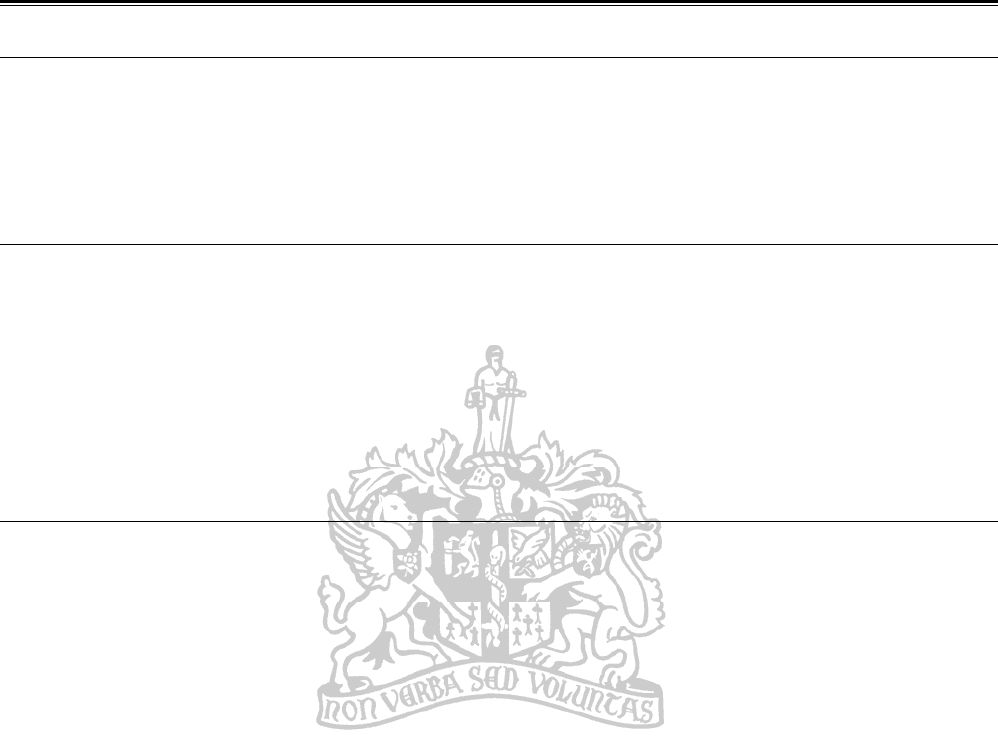
REF: 6302 – AUCKLAND DISTRICT LAW SOCIETY INC. 20
(ii) preferential claims: second in payment of preferential claims (if any) payable by the receiver under the
provisions of section 30 of the Receiverships Act 1993;
(iii) secured moneys: third in payment to the security holder of all the secured moneys; and
(iv) surplus: fourth in payment of any residue to those entitled to any surplus.
(h) Security holder not liable for receiver's costs: Except as provided for in this clause 25 the security holder has
no liability to the receiver for the receiver's remuneration, costs, charges or expenses or otherwise.
PART 8 MISCELLANEOUS TERMS
26. TRANSFER BY SECURITY HOLDER
The security holder may without notice at any time assign or transfer, or grant a security interest in this instrument and
the security interests witnessed therein. The party granting security agrees that the assignee, or transferee will have all
the rights and remedies available under this instrument and further agrees that it will not assert any right of set-off or
enter a claim which it has or acquires against the security holder and will pay the secured moneys as they come due to
the assignee or transferee as the case may be.
27. PRIOR CHARGES
If and so long as this instrument is subject to any prior encumbrance or charge, the party granting the security must duly and
punctually pay all money secured by, and comply with the terms contained or implied in, every prior general security agreement,
encumbrance or charge. If and to the extent that:
(a) any term relating to insurance (an "insurance term") in any prior general security instrument or charge conflicts
with any insurance term in the general security agreement; and
(b) the party granting the security complies with the first-mentioned insurance term;
such compliance will be compliance with the relevant conflicting insurance term in this instrument.
28. SERVICE OF NOTICES
The parties agree that any demand or notice required or authorised to be served on the party granting the security under or in
relation to this instrument may be signed by the security holder or by the security holder's agent and the following provisions
apply:
(a) method of service: the notice may be served:
(i) by delivering it to the party granting the security personally; or
(ii) by posting it by registered letter addressed to the party granting the security at the party granting the security's
place of residence or place of business last known to the security holder; or
(iii) in the case of a company, by leaving it at its registered office or by posting it by registered letter addressed to
the party granting the security at its registered office or addressed to it at its place of business last known to
the security holder or by delivering it to any person who is named on the public register as a director or
secretary of the company;
(b) when service effected: a demand or notice posted by registered letter is deemed served at the time when the
registered letter would in the ordinary course of post delivery have been delivered;
(c) service valid when effected: any service effected in accordance with this clause will be valid and effectual
notwithstanding that at the date of service, the party granting the security, whether to the knowledge of the security
holder or not, is dead, mentally incapable, bankrupt, in liquidation or absent from New Zealand or does not receive
the demand or notice and notwithstanding any other matter or event whatsoever;
(d) other modes of service: the modes of service provided by this clause do not limit any other sufficient and lawful
modes of service and are subject to any mandatory provisions in any statute;
(e) actual receipt is valid notice: where a demand or notice is not served in accordance with any of the foregoing
methods, it will nevertheless be sufficiently served if actually received by the party granting the security; and
(f) appointment of New Zealand agent by overseas owner of land: if this instrument is a mortgage of land and the
party granting the security is not resident in New Zealand, then the security holder may withhold any advance or
the making of any accommodation for the accommodation of the party granting the security until the party granting
the security has appointed an agent in New Zealand for the purpose of accepting service on its behalf under
sections 353 to 355 of the Property Law Act 2007.

REF: 6302 – AUCKLAND DISTRICT LAW SOCIETY INC. 21
29. COSTS
(a) Costs payable by the party giving the security: The party granting the security must pay to the security holder
upon demand, the security holder's legal costs (as between solicitor and client) for:
(i) documentation: the arranging, preparation and registration of this instrument and any variation or discharge
or transfer in lieu of discharge;
(ii) costs on default: legal services arising from or relating to any default under this instrument or the
enforcement or exercise or attempted enforcement or exercise of any of the security holder's rights, remedies
and powers under this instrument (including the giving or attempted giving of any notice under the Property
Law Act 2007 or any enactment in substitution for that Act, the inspection and valuation of the land and, if the
security holder is a solicitor's nominee company, the cost of compliance by the relevant solicitor with the
Solicitors Nominee Company Rules 1988 or any similar rules in relation to the matters mentioned in this
paragraph (ii));
(iii) costs of variation, waiver or change demand: dealing with any request by the party granting the security for
variation of or waiver, change demand or other concession in relation to this instrument;
(iv) other consents and requests: dealing with any request or requirement made of the security holder by any
person having or claiming any interest in the land; and
(v) legal costs of security holder: legal services relating to the protection of the security holder's security
interest under this instrument (including the investigation of any claim relating to the land which might affect
that interest).
(b) Costs payable despite nature of security holder: This clause applies notwithstanding that the security holder
may be a solicitor or a solicitor's nominee company.
30. MISCELLANEOUS PROVISIONS
(a) Prescribed interest rate: The security holder may from time to time by written notice to the party granting the
security nominate a rate of interest as the prescribed interest rate for purposes of this instrument. Until a
prescribed rate is nominated, the rate will be 2% per annum above the taxpayer's paying rate as at the date of this
instrument.
(b) Limitation on prescribed rate: Where at the date of the nomination there is in force any instrument between the
security holder and any party granting the security or any accommodated person relating to the secured moneys
and providing for the payment of interest on the secured moneys or any part thereof, the rate nominated must not
exceed the highest rate of interest at the date of the nomination payable under any such instrument on any part of
the secured moneys (being the highest default or penalty rate if such a rate is payable). If there is no such
instrument in force at the date of the nomination then the rate nominated will not exceed a rate 2% per annum
above the rate which at such date is the taxpayer's paying rate.
(c) Production of documents by security holder: The security holder is not bound to produce at a Land Registry
Office or elsewhere any document of title or mortgage:
(i) whilst the party granting the security is in default under a mortgage; or
(ii) if production is required for the purpose of registering or giving effect to a dealing of any kind mentioned in
clause 19(d)(i) or(iii) or clause 6 to which the security holder has not given prior written consent; or
(iii) until the reasonable costs of production have been first paid to the security holder.
(d) Security holder's rights not prejudiced by waiver or acquiescence: No waiver or acquiescence by the security
holder in relation to any default by the party granting the security or in relation to any other event or circumstance
will prejudice the security holder's rights in respect of any other or future default, event or circumstance, whether of
a similar nature or not.
(e) Judgment interest payable at prescribed interest rate: If the security holder obtains judgment against the party
granting the security for any sum payable under this instrument, the party granting the security must pay to the
security holder interest on that sum from the date of judgment until the date such sum is paid. Such interest will be
calculated at the prescribed interest rate.
(f) (i) Set off: The security holder may set off any moneys owed to the party granting the security by the security
holder or property claimed by the party granting the security from the security holder against any of the
secured moneys.
(ii) Application of moneys: The security holder may appropriate any sum paid by or otherwise credited to the
party granting the security in or towards payment of such part or parts of the secured moneys as the security
holder may in the security holder's absolute discretion determine.
(iii) Set off and application of moneys not affected: This subclause will apply whether or not the party granting
the security is bankrupt or in receivership or liquidation.
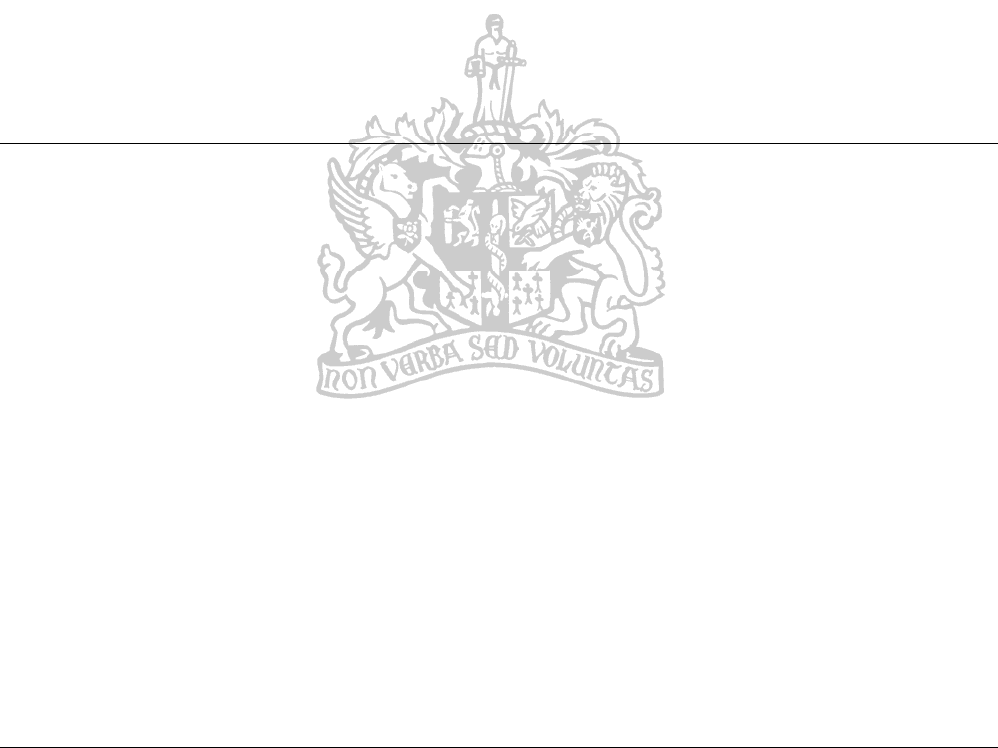
REF: 6302 – AUCKLAND DISTRICT LAW SOCIETY INC. 22
(g) Multiple security holders: If the security holder comprises more than one person, every right and thing which
may be exercised or done by the security holder may be exercised or done by any one or more of them and, in
such event, will have effect as if each were the authorised agent of the other or others to exercise or do such right
or thing.
(h) Party granting security is principal and not surety: Although as between any party granting the security on the
one hand and any accommodated person on the other hand, such party granting the security may be a surety,
nevertheless as between the security holder and each party granting the security the party granting the security
will, in relation to the secured moneys, be a principal party granting the security and will not be released by any
act, matter or thing which would release one liable only as a surety.
(i) Application of moneys paid on shares: Any money received by the party granting the security as the proceeds
of a calling up of any shares, and any money paid on shares without being called up, may, at the security holder's
option, be demanded and received by the security holder and applied in or towards payment of the obligations
hereby secured.
(j) Conditions applying to security holders consents: Where the party granting the security covenants or agrees
not to do a specific act or thing without obtaining the prior written consent of the security holder, then the security
holder may grant such consent subject to conditions and the party granting the security will be permitted to do such act or
thing only to the extent, and/or subject to the conditions set out in the security holder's consent.
(k) Obtain all necessary consents: The party granting the security must do all things necessary to effect all laws,
directives and consents that are or may become required to perform or comply with its obligations under this
instrument.
(l) Acknowledgement of receipt of copies: The party granting the security acknowledges receiving a copy of this
instrument and waives all rights to receive from the security holder verification of any financing statement, or any
other notice of any event prescribed by the Personal Property Securities Act 1999.
(m) Partial Invalidity: The illegality, invalidity or unenforceability of a provision of this instrument under any law does
not affect the legality, validity or enforceability of that provision under another law or the legality, validity or
enforceability of another provision.
31. TRUSTEES
(a) Representations by trustees: If any party granting this security or entering into any secured agreement is
entering into it as the trustee of a trust then that person represents and warrants to the security holder that:
(i) powers: the party has the power under the instrument under which the party holds property on trust to enter
into this instrument and/ or each secured agreement;
(ii) proper purposes: the entry into this instrument and/or the secured agreements is for a proper purpose and
for the benefit of the trust under which the party holds property;
(iii) right to be indemnified: the party has the right to be indemnified from the assets of the trust and that right
has not been lost or impaired by any action of the party including the entry into this instrument and each
secured agreement; and
(iv) all trustees approve or assent: all of the persons who are trustees of the relevant trust have approved and
have signed or assented to this instrument and each secured agreement.
(b) Trustees have full and unlimited personal liability: Unless a party granting this security has been named in this
instrument or in any secured agreement as a limited liability trustee (in which case the provisions of clause 32(c)
will apply) every party granting this security has full and unlimited personal liability for the repayment of the
secured moneys and the compliance with all obligations in this instrument and in any secured agreement.
(c) Limited liability trustees: If a party granting this security has been named in either this instrument or in any
secured agreement as a limited liability trustee the liability of that party is not personal and unlimited but will be
limited to an amount equal to the value of the assets of the trust under which that party has entered into this
instrument as a trustee that are (or, but for default would be) available to meet that party's liability for the secured
money (the "limited amount") unless the right of that party as a trustee to be indemnified from the assets of the
trust has been lost and, as a result, the security holder is unable to recover from that party the limited amount.
32. LICENCE TO USE MEMORANDUM
The mortgagee acknowledges that copyright in the form and content of this memorandum is claimed and is owned by the
Auckland District Law Society Incorporated (the ADLSI) and the mortgagee represents and warrants to the party granting
the security and to the ADLSI that upon registration of the mortgage instrument incorporating the terms of this
memorandum it has paid the required licence fee and has acquired the right to incorporate these terms in the mortgage
instrument. The provisions of this clause confer a benefit on the ADLSI to the intent that a breach of this representation
and warranty by the mortgage is enforceable by the ADLSI. A breach of this provision does not, however, invalidate the
incorporation of the terms of the memorandum into the mortgage instrument.
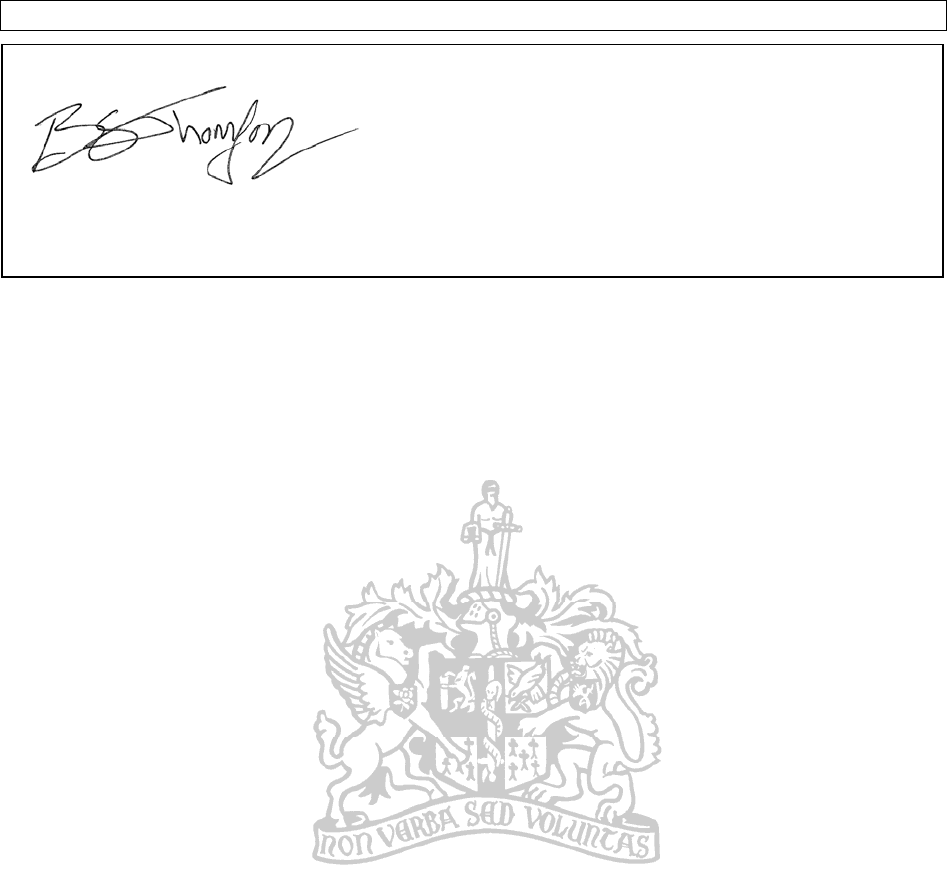
REF: 6302 – AUCKLAND DISTRICT LAW SOCIETY INC. 23
Execution
Dated this 18
th
day of May 2015
Executed on behalf of the Auckland District Law Society Incorporated by:
____________________________________________________________
Ben Thomson, Documents and Precedents Manager
MEMORANDUM No. 2015/4326
Land Transfer Act 1952
GENERAL TERMS AND CONDITIONS
Registered pursuant to Section 155A
Land Transfer Act 1952
Registrar - General of Land
Land Registry
(Abstract number/date )
